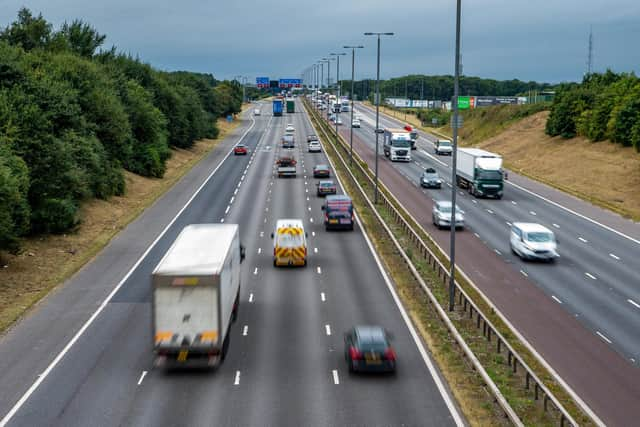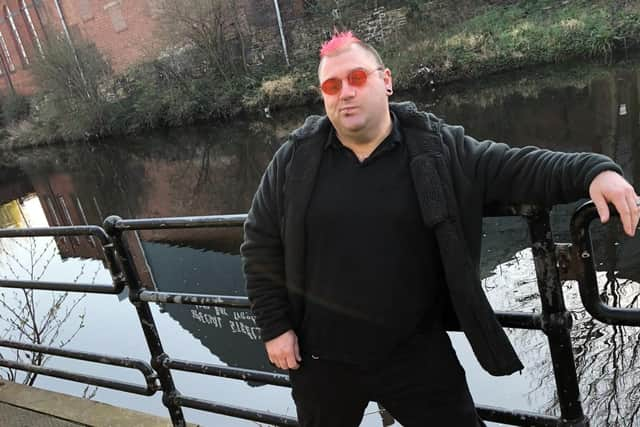M1: New emergency refuge areas installed on smart motorway but hard shoulder will not return
National Highways said it is doubling the number of emergency areas on the M1 between junctions 32 (Thurcroft) and 35A (Stocksbridge), taking the total 16.
The project, which will install bright orange areas that are 100m long, will begin on Monday, June 5 and it is due to be completed by winter 2024.
Advertisement
Hide AdAdvertisement
Hide AdIt comes after the Government cancelled plans to build more all-lane running smart motorways in April, citing a “lack of public confidence”.


But it also refused to reinstate the hard shoulder on existing smart motorways and cancel projects which are more than 75 per cent complete, despite calls from campaigners who are concerned about more fatal collisions.
Nargis Begum died on a stretch of the M1 near Woodall Services which had no hard shoulder, after the Nissan Qashqai she was a passenger in broke down in September 2018.
The 62-year-old and her husband Mohammed Bashir, 69, waited for help by the car for 17 minutes before another vehicle collided with it.
Advertisement
Hide AdAdvertisement
Hide AdThe following year, Jason Mercer, 44, and Alexandru Murgeanu, 22, were hit by a lorry and killed on a stretch of M1 which did not have a hard shoulder, after they stopped in the left-hand lane to exchange insurance details following a minor collision near Sheffield.


The lorry driver, Prezemyslaw Zbigniew Szuba, was jailed for 10 months after admitting two counts of causing death by driving without due care and attention.
National Highways said a £900m programme of measures to improve safety on these roads will continue and it is committed to creating more than 150 new emergency areas by 2025.
The Government has previously claimed that smart motorways are far safer than other roads, as they are constantly monitored with a network of cameras and technology that detects stopped vehicles.
Advertisement
Hide AdAdvertisement
Hide AdHowever, the reliability of the safety system – known as Dynac – has been questioned and National Highways admitted it stopped working for around two hours on February 22.
Felicity Clayton, from National Highways, said: “We have listened to drivers' concerns about being able to find a safe place to stop in an emergency on motorways which don’t have a permanent hard shoulder and have been developing a programme to roll out even more emergency areas on all lane running smart motorways, in operation and construction.
“This investment in extra emergency areas will help increase road users’ confidence.
“We have also put stopped vehicle detection technology in place on all operational all lane running motorways, added more signs so drivers will almost always be able to see a sign informing them of the distance to the next place to stop in an emergency, and included advice about smart motorways online and in an updated Highway Code, to help road users feel safe and be safer on our roads.”